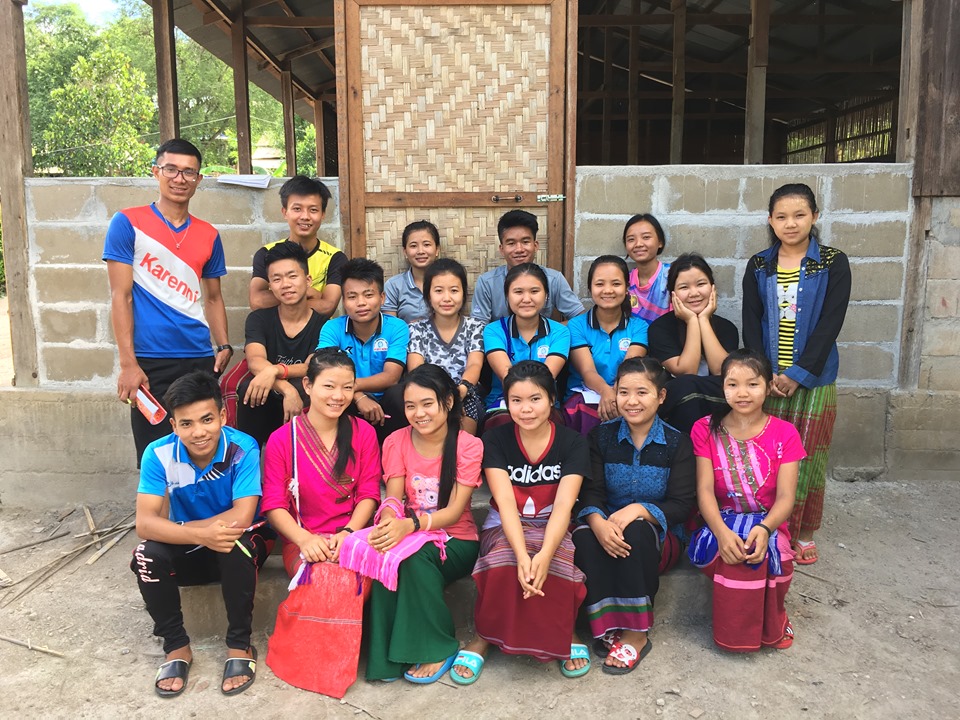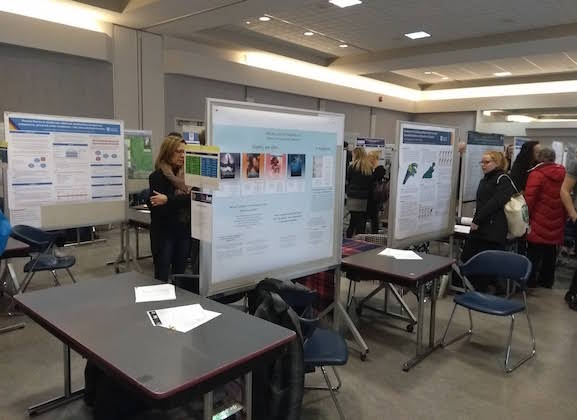Adapting to the jungle life: Thailand internship
Guest post by Luisa Schwarz
Luisa Schwarz is a UVic Geography and Environment Studies student and athlete (cross-country and track) who is currently working in Thailand with the Karenni Social Development Centre (KSDC). Her internship is organized through UVic’s Centre for Asia-Pacific Initiatives (CAPI) and funded by the UVic President’s Beyond Borders Fund and the Canadian Retired Heads of Mission Association. Read more of Luisa’s CAPI intern blog posts.
One month ago, I stepped foot in Dokita, a little village outside of Mae Hong Son city in the North of Thailand. After spending my first few days in Bangkok, I was immediately struck by the contrast of the lush green hills and the surrounding jungle. This new home of mine is incredibly different from anywhere I have lived before. The sounds, the landscapes, the culture, the food, and the lifestyle were all new to me.
I remember my first night at the school, laying on a mat under my bug net and hearing the call of a tokay (gecko), the screech of cicadas (at the time I had no clue what these sounds were, just that they were very loud), and a few hours later, awakening to the crows of the roosters. I remember the heat and humidity taking everything out of me and the food, new and delicious, but so spicy that I had a hard time handling it. Although there were some challenges, I was also in constant awe. These last few weeks have been filled with many changes. Now, the sounds, once so distinct, have become simple background noise. The heat has become almost normal, and my stomach can handle a little bit of spice. This month has taught me how adaptable the human body is and how quickly a place can begin to feel like home.
My smooth adaptation to this new environment is greatly due to the incredible people whom I am surrounded by every day. My two amazing coworkers, Matt and Emily, and my 18 brilliant students are some of the most welcoming, humble, and caring individuals that I have ever met.
Growing up in a part of the world that values individualistic culture, I had never witnessed a community similar to this one. Everything at the school is done together and everyone is considered before a decision is made.
Our students sleep side by side on bamboo mats every night. At 6 am, they awake and split up into groups to perform their daily chores which include cooking, cleaning, foraging, and gardening. In the evenings, after class is finished, they all get together to help each other out with their homework. There is rarely a minute that is spent apart from one another and yet they never tire from each others presence.
The day is filled with smiles, laughter, singing (so much singing), and affection. I am so grateful to be able to experience this level of unity and collectivism and to learn from these amazing individuals. I can’t help thinking what a peaceful world we would live in if everyone thought in this way.
My students are also a treat to work with. I am currently teaching subjects for the Karenni Social Development Centre’s (KSDC) Advanced Community Management Training Course. Right now, we are learning about work skills and throughout the course we will attempt to tackle office management, proposal and report writing, community mobilization, campaigning, and sustainable development. Whether or not we manage to cover all of these subjects is dependent on our funding which I will discuss shortly.
I am starting to get in the groove of lesson planning and teaching, but I definitely find it difficult to teach some of these subjects to students who are still learning the English language. Karenni people are also known to be very shy and polite, and they therefore do not tell me when something is not understood. I have learnt that speaking slowly, asking questions, and attempting to read my students expressions is key for their understanding.
The KSDC itself is a Community Based Organization (CBO) located on the Thai Myanmar border that is run by and for Karenni refugees. The Centre provides training on human rights, rule of law, community management, English, and the environment. The Karenni people are one of the many ethnic minority groups to have been forced to flee Myanmar due to conflict and human rights abuses.
My students have almost all grown up in refugee camp 1, a camp around 30 minutes away from the school. The goal of the KSDC is to provide these young refugees with the necessary knowledge and skills to become future advocates in their community and to help contribute to a peaceful and equal future in Karenni state.
Unfortunately, this month has also included some frustrating news from the school’s primary donor for the past 18 years. The international community is pushing for Karenni refugees as well as the KSDC to move back to Karenni state. Although things are improving, and conflict is not currently active, it is still dangerous to be an activist in any way.
Because our students are learning subjects that are not accepted by the Myanmar government and wish to become leaders in their community, it would not be feasible for the school to relocate to Myanmar. This recent loss of funding has thrown a curveball at the KSDC as we struggle to find donors to finish this year’s course and to continue for years to come.
Although this is a heavy way to end this blog, I think that it is important to display the reality and struggles for funding that many empowering CBOs and NGOs face across the world. If anyone reading this blog wishes to learn more about the KSDC or make a personal donation, please visit the following link: www.karennisdc.org/donate . If you have any further questions or ideas on potential donors please contact the school at admin@karennisdc.org.
Thank you for reading!







